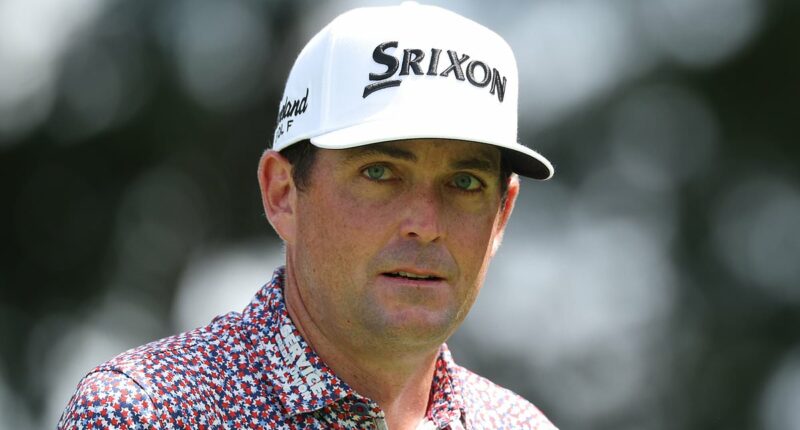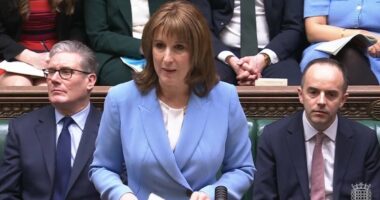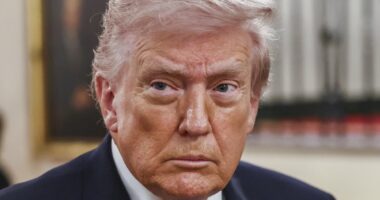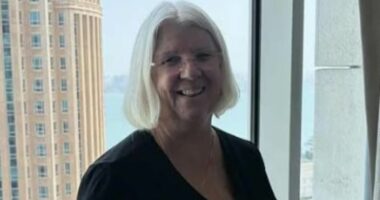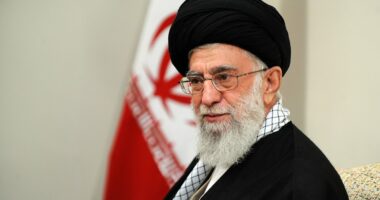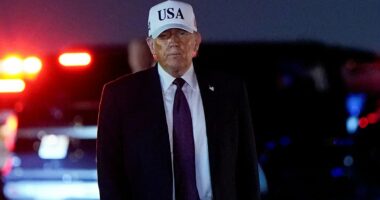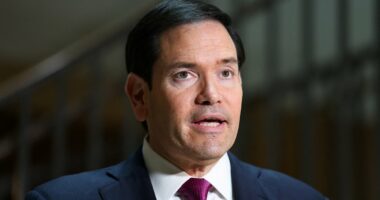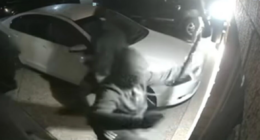Share this @internewscast.com
Keegan Bradley is set to announce his US Ryder Cup team on Wednesday, and the big question on everyone’s mind is whether he’ll choose himself as part of the team, as urged by President Trump. Many across the Atlantic are expecting he will do just that.
This decision highlights an unusual and chaotic period in his captaincy, with opinions pouring in from all corners, including the White House, about whether Bradley should compete at Bethpage Black next month.
For over a year, the choice has loomed in the distance, but now Bradley must finalize which six players will join his six qualifiers for the Cup, with the deadline at 4pm BST.
Should he announce his own inclusion, he would be the first player-captain since Arnold Palmer in 1963, aligning with Trump’s wishes, while European opponents believe it’s a decision likely to backfire.
Europe’s captain, Luke Donald, who generally avoids controversy and is a close friend of Bradley, would never suggest it publicly, but he and others think the US has mishandled the situation enough to potentially boost Europe’s chances for victory on American soil.
Bradley was unexpectedly chosen as captain 59 weeks ago after Tiger Woods abruptly left the PGA of America. In a hurried decision, the US team turned to Bradley, who had not been previously involved in their recruitment discussions, his first contact with them being the offer for the role. It’s quite the unexpected turn of events.

US Ryder Cup captain Keegan Bradley will finalise his picks for the showpiece on Wednesday

US President Donald Trump has urged the in-form Bradley to pick himself in the US team
If that was an example of a flawed process, then the real farce comes from the predictability of this current problem.
Bradley was No 19 in the world at the time of his appointment and today he stands at No 11, oozing the kind of passion for the Cup that has often been conspicuous in its absence among the US side. Their demand for $500,000 apiece to play is part of that perception.
Objectively, Bradley is clearly one of their best 12 golfers on form that included a Tour-level win just nine weeks ago.
But whether he can juggle captaincy with playing – an undertaken not performed since the Cup was a garden fete by comparison to today’s three-ring circus – is at the crux of his decision.
Rory McIlroy’s long-held view is that it is ‘impossible to do both’ jobs and Sir Nick Faldo laughed when I asked him about such a prospect last week.
‘I’d like that from a European perspective,’ he said. ‘It’s probably impossible, but the Americans can worry about that.’
With Scottie Scheffler, Xander Schauffele, JJ Spaun, Russell Henley, Harris English and Bryson DeChambeau already in, Bradley realistically must choose the next six from a pool of Justin Thomas, Collin Morikawa, Patrick Cantlay, Cameron Young, Ben Griffin, Sam Burns, Chris Gotterup and himself.
Thomas is perceived as close to a certainty and Cantlay – he of the hat protest in Rome – is considered more likely than not to get the nod.

Bradley is clearly one of their best 12 golfers right now but if he picks himself, he will become the first player-captain since Arnold Palmer in 1963

It is widely felt that it will be a good thing for Team Europe if Bradley does choose himself
The rest are more open, but according to several sources, Bradley will back himself, with some of the responsibilities handed to vice-captain Jim Furyk, after a recently-amended Captain’s Agreement allowed the latter to take charge of certain duties when he is on the course.
Bradley has described it as the ‘biggest decision’ of his life, which, in keeping with other discussions around Ryder Cup captaincy over the years, was perhaps a touch overblown.
Even the best captains have limits to their impact, and historically those tend to be of far less consequence than a partisan crowd when the teams are evenly matched.
If Bradley plays and the US lose, his decision will be ridiculed forevermore; if he plays and wins, we might conclude the role is buffeted by too much fuss. A mess that the Americans brought upon themselves stands to test that latter theory more than ever before.
